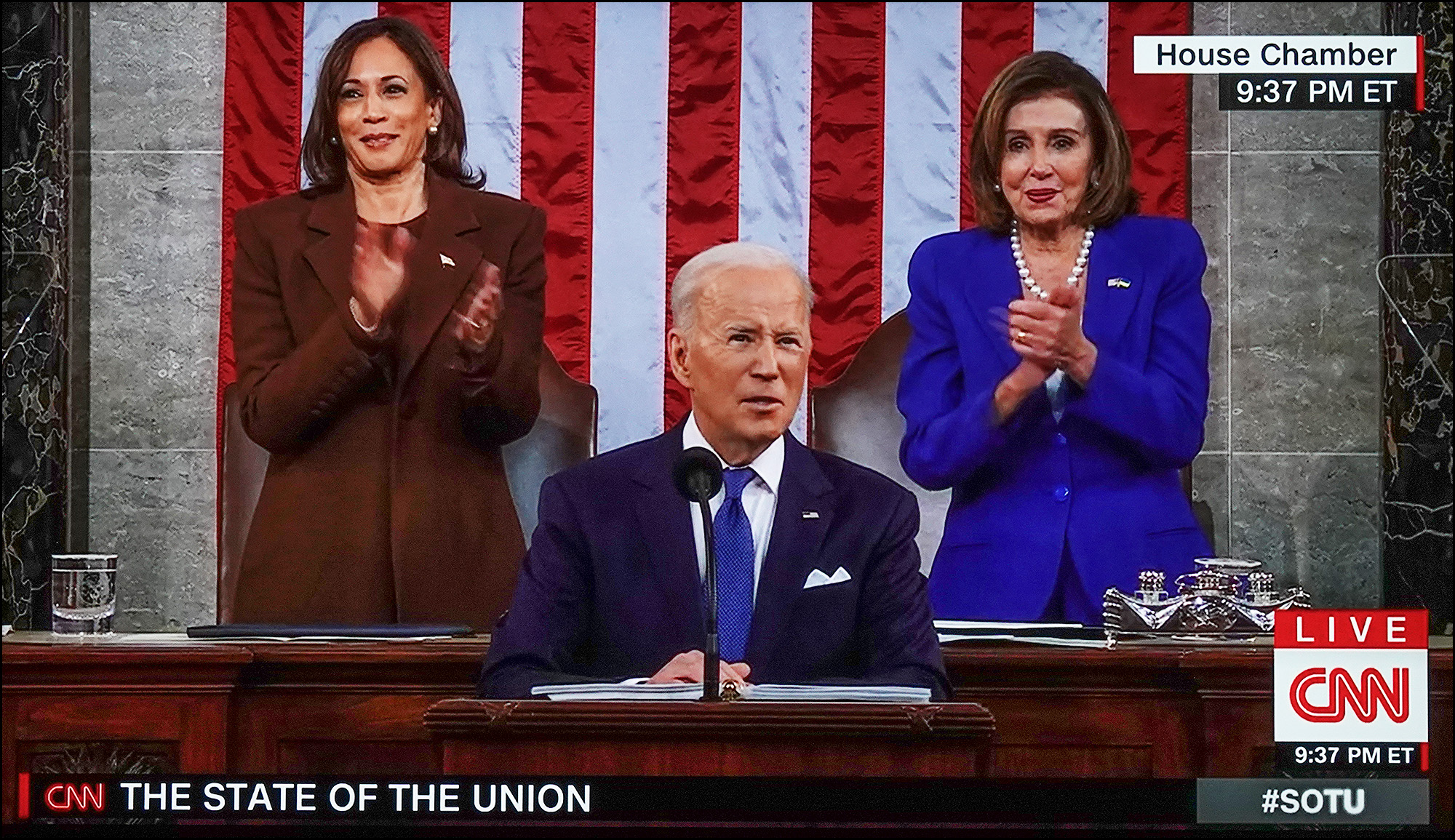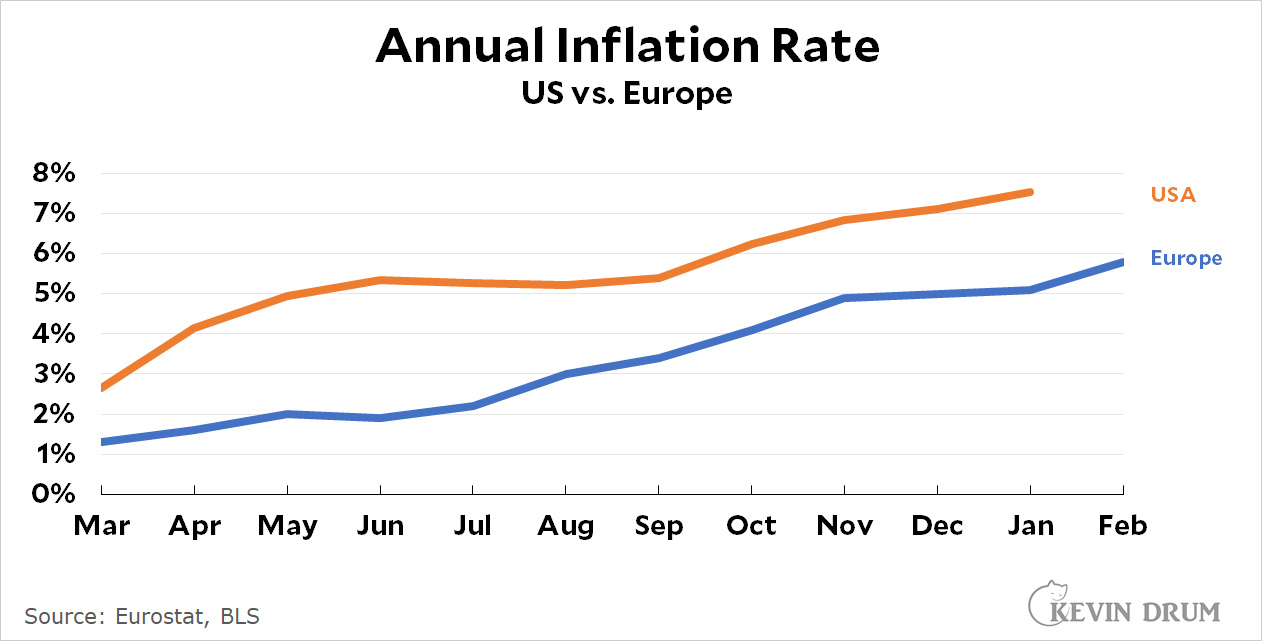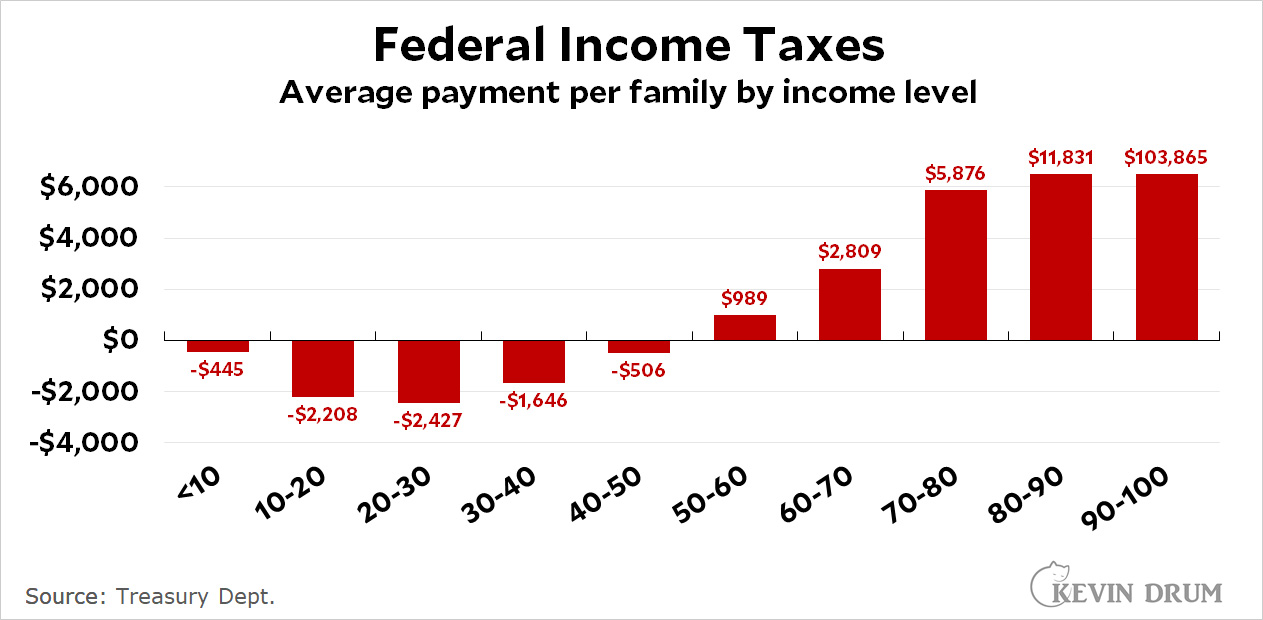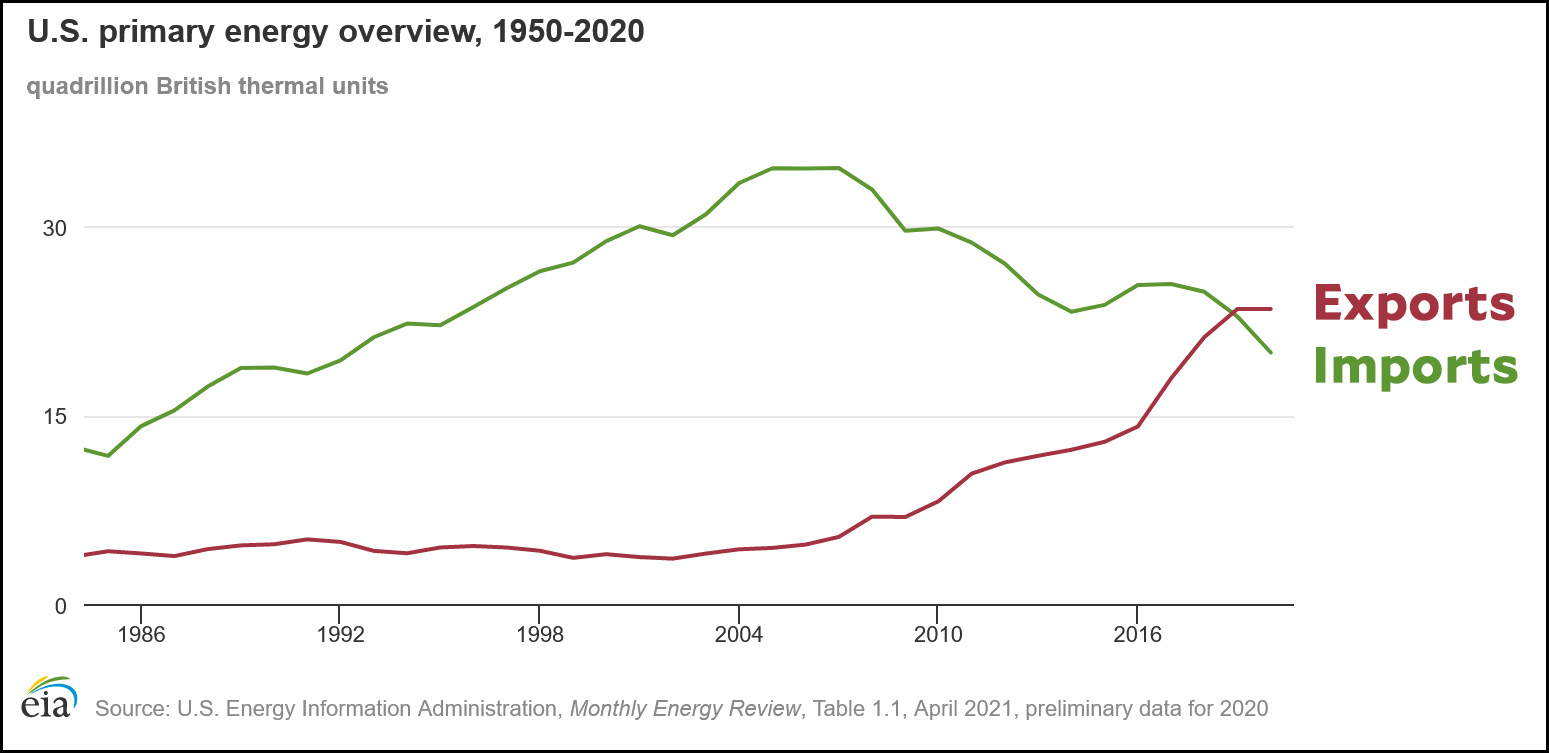For the first time in a long while I watched the State of the Union Address like a normal person: only barely paying attention.
Overall, I thought it was fine. President Joe was very much on his bipartisan schtick, starting off with lots of crowd-pleasing Ukraine stuff and then emphasizing things he thought everyone could support. He took a few partisan shots—one at the Republican tax cut, another at "infrastructure week"—but those were kept to a minimum. Otherwise he talked about funding the police, protecting the border (though without a lot of detail), and his cancer moonshot, which are hardly the ingredients of partisan strife.
 I imagine this didn't go down too well with Democrats in the TV audience, most of whom probably wanted a little more red meat. At the same time, I don't imagine he pulled many Republicans over to his side regardless of his demeanor. After all, he didn't promise to end the scourge of CRT in our classrooms or call on Democrats to stop stealing elections.
I imagine this didn't go down too well with Democrats in the TV audience, most of whom probably wanted a little more red meat. At the same time, I don't imagine he pulled many Republicans over to his side regardless of his demeanor. After all, he didn't promise to end the scourge of CRT in our classrooms or call on Democrats to stop stealing elections.
I thought the worst part of the speech was when Biden talked about inflation. He rattled off a bunch of stuff that was way too complicated for most people to understand. Even at the risk of incurring the wrath of the fact checkers, he should have simplified this to about a third grade level.
The best part of the speech was pretty clearly the opening few minutes about Ukraine, which set a great tone for the rest of the address. Biden's "four things we can all agree on" was also good, but it needed a summary: "Opioids, mental health, veterans, and cancer." I'm surprised none of the writers thought to include that.
Transcript here.






